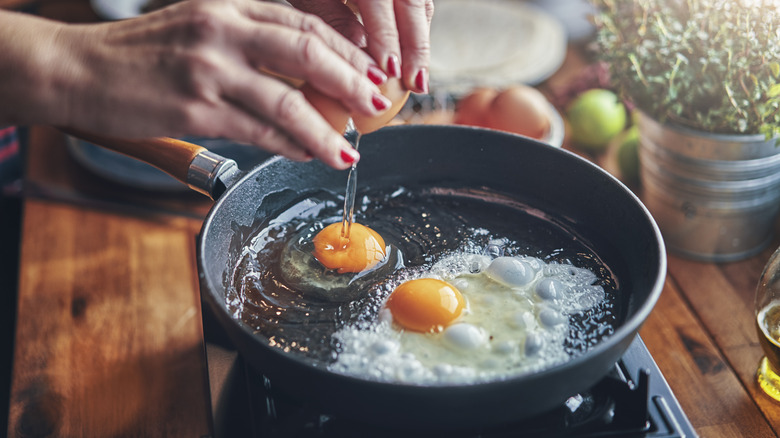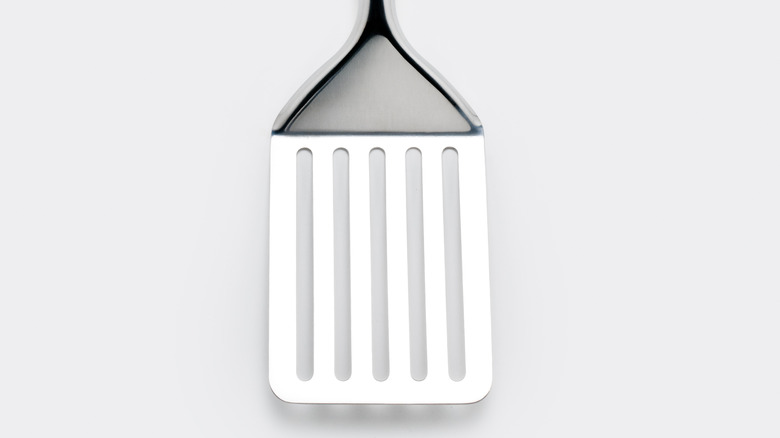The Only Type Of Spatula You Should Use To Flip Fried Eggs
When it comes to achieving a perfectly fried egg, flipping it is a pivotal moment. However, if the spatula you're working with is rather thick, it's nearly impossible to get a clean flip without those crispy edges folding over, or worse — the yolk breaking. The thinner the spatula, the easier you will be able to maneuver underneath the protein in order to cover more ground and get a better grip.
If you're accustomed to flipping your fried eggs with a thicker spatula, be it with a silicone, nylon, rubber, or plastic material, you're likely to find yourself with a broken yolk, torn egg whites, or jagged, folded-over edges. A thicker spatula makes it harder to fully weasel your way under the egg in order to flip it with ease, and these utensils often don't have enough flexibility to bend when dipping down into the pan.
Instead, try working with a super-thin metal spatula with a square or rectangular base. This type of tool is flexible enough to bend and conform to the grooves of the egg and the pan, even if you're working in a small skillet, thin enough to slide under the egg with ease, and large enough so that you can grasp enough surface area under your egg to achieve the ultimate flip.
A thin metal spatula is best
Knowing when to flip your eggs is just as important as the tool you're using, and sometimes the indications are a bit too subtle. On average, it takes about a minute to a minute and a half for the egg white to fully cook around the yolk. Once the whites are completely opaque, and with the feel of your spatula it's nice and firm, that is a green light to give it a go.
If you're about to fry an egg up and don't have access to this type of utensil last minute, a thin plastic spatula will work just fine. However, if you own a metal fish spatula, that is a close alternative, as they are just as flexible, allowing for a more predictable flip.
A thin metal spatula is a great tool to have, as it not only allows for the ultimate fried eggs, but it's perfect for transferring freshly baked cookies, sliding in between tight-knit pancakes for flipping, preventing you from butchering the ones nearby, flipping burgers on the grill, tossing roasted vegetables or potatoes, folding an omelet like a French chef would, and even breaking up ground meat.

